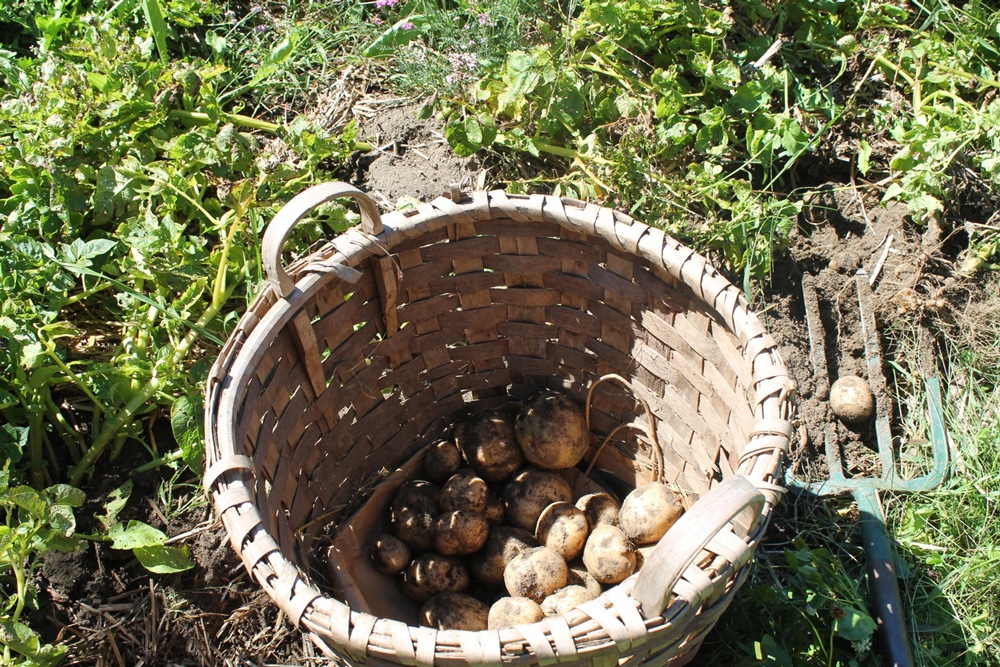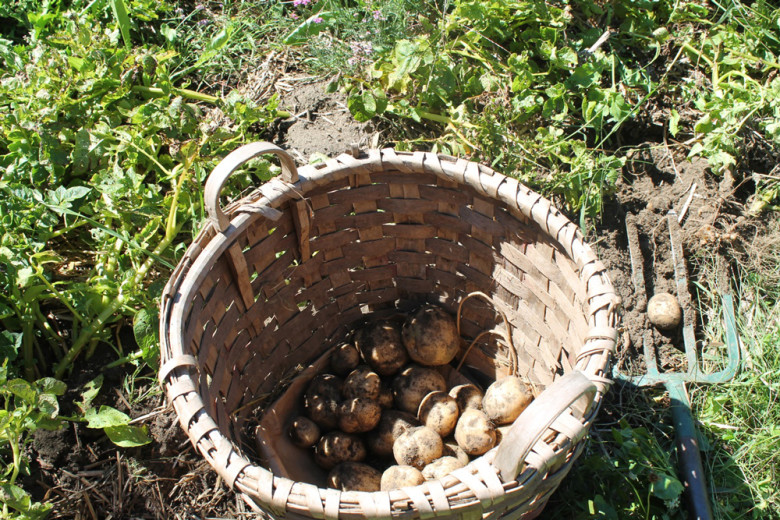
Digging In | The Farmer’s Life
Photo Credit : Julia Shipley
Photo Credit : Julia Shipley
Growing a potato could make a farmer out of anyone; that is, as soon as the ground thaws. Currently, a few bushels of our Corollas—those bald, soap-shaped staples of our winter diet— lurk in the oldest part of our 150-year-old house, the cellar. Every week I descend nine steps down and collect and bring up a shirt-hem’s worth of spuds.
About the time I tire of ever eating them again, in the 15th week of winter, is when they’re starting to wrinkle anyway, and launch spooky white shoots from their “eyes.” But right now we’re steeped in that easy, halfway place—between the day I harvested them, and the day I’ll cut up what remains and plant them again.
I ate potatoes for half my life before knowing anything about how they were grown, even though it was the famous failure of this crop that caused me to be born on this side of the Atlantic and not in County Cork, Ireland, where my great-great-grandfather Jeremiah fled the famine in 1853. About the same time as my ancestor was leaving his home forever, here in northern Vermont, another man was just arriving on the premises. He was from Connecticut and he purchased a chunk of land in this north-country town. After he sawed down a few trees, and staked out the dimensions of his new house, he began digging his cellar hole, and eventually built the home where I now reside.
Meanwhile, Jeremiah’s transplanted life in America did not involve raising vegetables; hence I never knew how the potato grew until my twenties when I sought out an agricultural apprenticeship. Pomme de Terre—the soil’s fruit—simply requires you to cut a chunk of sprouting spud and plant it in early spring. From that forgotten, buried nub a leafy plant will rear and thrive, and even hang a bunch of subtle flowers. Then, in August it will begin to wither and die, until all that’s left is a clutch of slumping stalks. In late fall, before the ground freezes, I’ll fetch my digging fork and baskets.
“After you loosen the soil, plunge your hands in,” I once told Jeremiah’s great-granddaughter—my sixty-year-old mother. She obliged and then, like a girl who’d just won a prize, exclaimed: “Oh look,” as she hauled a whole meal out of the ground, her hand around an unusually huge tuber.
It is, I think, the original magic trick—to reach into the ordinary, old ground and bring up all this food.From one little chunk: a pile of potatoes. Just as from young, industrious Jeremiah, a bushel of descendants. One of which settled here, in a stout house on good land. I think of them both, my official and unofficial forefathers, as I descend into the cellar and bring up a shirt-hem’s worth of potatoes to cut and boil and eat, joyously, for supper.
Julia Shipley
Contributing editor Julia Shipley’s stories celebrate New Englanders’ enduring connection to place. Her long-form lyric essay, “Adam’s Mark,” was selected as one of the Boston Globes Best New England Books of 2014.
More by Julia Shipley

